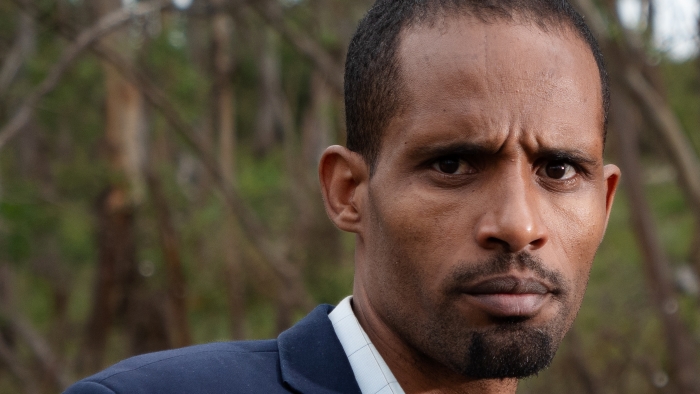“One of my friends in high school died of rabies and there were others in my rural village who died from tuberculosis,” said Gashaw, a PhD student in UNE’s School of Health. “In my country, the lives of the people are connected to the lives of their animals and the health of the environment.”
Gashaw and his three siblings grew up in the Amhara region, in the north of the African nation, and were luckier than most. “My parents had enough income to look after us and we were fortunate to have good health,” he said. “But in developing countries like Ethiopia there is no policy around preventing zoonotic diseases. People drink milk without any pasteurization and eat meat without cooking it and that can be a major health issue.”
These threats inspired Gashaw to first study veterinary medicine, followed by a Master’s degree in integrated health risk management (or One Health) from the University of Liege in Belgium. Now, as well as teaching at the College of Veterinary Medicine and Animal Science at the University of Gondar, Gashaw is again researching One Health for his PhD at UNE.
One Health is the multidisciplinary approach that investigates the connections between human, animal and environmental health to identify the root causes of complex infectious diseases and develop strategies to prevent them.
The World Health Organisation (WHO) says some 60% of the emerging infectious diseases reported internationally come from animals, and human activities across stressed ecosystems are enabling more diseases to emerge and rapidly spread.
“We can’t manage disease like rabies and tuberculosis easily and have to work together to have success,” said Gashaw, who has previously studied bacterial pathogens in fish and bovine tuberculosis.
“Our world is connected, and my current research project is looking at antimicrobial resistance, which is a problem globally.”
Gashaw’s bigger ambition is to establish a One Health research centre in Ethiopia to help control the transmission of preventable diseases. “There are different problems in different countries and, in Ethiopia, we have to start by increasing awareness of the One Health approach.”
His PhD supervisor, Dr Shahid Islam, understands the challenges all too well. He is coordinating a new course at UNE – Australia’s first Master of Public Health (One Health) – which focuses on ways graduates can contribute to new surveillance and disease control methods to drastically improve health outcomes the world over.
“This degree will give UNE graduates a distinct advantage in the public health field and is strongly aligned with WHO’s strategic goals, Dr Islam said.
“Students learn how to understand, identify and contain diseases, and prevent future outbreaks.”
More information or enrolment advice on the Master of Public Health (One Health).


